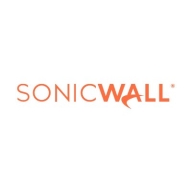

Cisco Meraki Wireless LAN and SonicWall SonicWave Access Points compete in providing robust wireless internet solutions. Cisco Meraki holds the upper hand with its extensive support and integration options, while SonicWave is notable for its advanced features appealing to those prioritizing functionality.
Features: Cisco Meraki highlights a user-friendly dashboard enabling centralized management via the cloud, strong security protocols, and seamless integration with existing infrastructure. SonicWave is valued for its advanced security features, high-performance capabilities, and integrated firewall content filtering.
Room for Improvement: Cisco Meraki could benefit from enhancing its performance features to match those of competitors and introducing more granular customization for experienced users. Additionally, improved AI capabilities could elevate its adaptability. SonicWave may improve by simplifying its setup process and enhancing management tools to be more intuitive, as well as expanding its integration capabilities with other network ecosystems.
Ease of Deployment and Customer Service: Cisco Meraki provides an uncomplicated deployment process coupled with excellent customer support, making it ideal for businesses seeking simplicity. SonicWave is recognized for a more complex setup but offers comprehensive support tools, catering to those who prefer detailed deployment control.
Pricing and ROI: Cisco Meraki's pricing is consistent with its cloud functionalities, offering an attractive ROI for users embracing its ecosystem. SonicWave, while potentially more costly, promises ROI through enhanced performance and security, positioning it as a worthwhile investment for those focused on high-value features.
| Product | Market Share (%) |
|---|---|
| Cisco Meraki Wireless LAN | 11.1% |
| SonicWall SonicWave Access Points | 0.7% |
| Other | 88.2% |


| Company Size | Count |
|---|---|
| Small Business | 69 |
| Midsize Enterprise | 26 |
| Large Enterprise | 31 |
SonicWall SonicWave series wireless access points (APs) combine high-performance IEEE 802.11ac Wave 2 wireless technology with flexible deployment options. These APs can be managed via the cloud using SonicWall WiFi Cloud Manager (WCM) or through SonicWall's industry-leading next-generation firewalls.
We monitor all Wireless LAN reviews to prevent fraudulent reviews and keep review quality high. We do not post reviews by company employees or direct competitors. We validate each review for authenticity via cross-reference with LinkedIn, and personal follow-up with the reviewer when necessary.